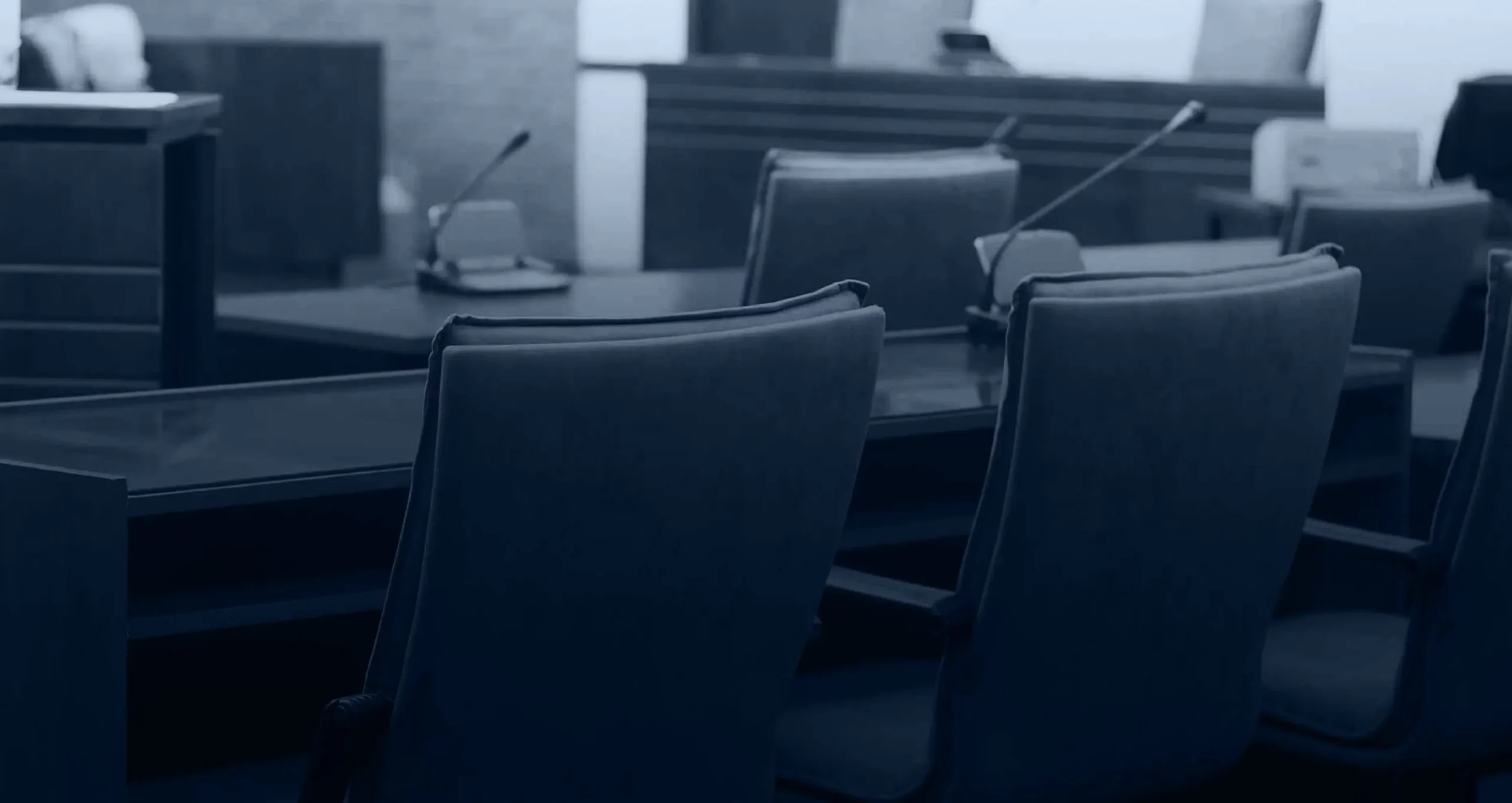Gallbladder removal, called laparoscopic cholecystectomy, is one of the most common surgical procedures. Since its increase in popularity in the 1980s, many people have undergone cholecystectomies. Today, doctors perform about 300,000 cholecystectomies every year.
However, complications from cholecystectomies can result from a medical professional’s negligence, causing patients severe loss, pain, and suffering.
If you sustained injuries from an error due to gallbladder removal, a medical malpractice attorney in Chicago at Zayed Law Office could help you recover compensation from negligent medical professionals.
Potential Complications Resulting from Cholecystectomy Errors
The complications from a cholecystectomy include:
- Inflammation of the bile ducts
- Tears that develop when inserting surgical instruments
- Lacerations of the intestines or bowel that cause infections, leaks, and abscesses
- Damage to the liver
- The cutting or clipping of the common bile duct or hepatic ducts during surgery
- Damage to surrounding arteries
- Pushing gallstones into the common bile duct or leaving them within the abdominal cavity
Types of Cholecystectomy Mistakes
Errors due to surgeon negligence or other circumstances can cause cholecystectomy complications. These potential errors and mistakes include:
Failing to Prepare
Surgeons need to know what the procedure will entail from start to finish, but they don’t always receive a complete brief. Additionally, surgeons must prepare for any potential complications throughout the procedure and must ensure that surgical assistants have the right tools to complete it. A failure to properly prepare puts patients at risk.
Inadequate Post-Operative Care and Monitoring
After performing the cholecystectomy, patients require follow-up appointments to ensure they’re healing properly. In some cases, doctors may neglect to provide follow-up appointments on time or provide inadequate follow-up care, leading to unnoticed complications until they become severe and potentially life-threatening.
Failure to Communicate
Some instances of cholecystectomy errors may result from communication errors. Before performing the procedure, doctors must ensure that patients and others involved know what the procedure entails. This communication will help prevent potential complications.
Doctors cannot communicate the procedure details effectively to the many people involved in the surgery, including nurses, primary care physicians, surgical assistants, anesthesiologists, and others. Doctors must do what they can to identify all parties involved and communicate the procedure with each one beforehand.
Fatigue
Many surgeons work for long periods, which strains them and cause them to underperform and potentially put patients at risk. To avoid fatigue, surgeons must take break periods and get plenty of rest before performing any surgical procedure. Otherwise, fatigue can increase the chances of error and lead to complications.
Performing the Procedure Too Quickly
Doctors may also feel too familiar with the cholecystectomy procedure and fail to practice proper care when performing it. They may also attempt to complete the procedure too quickly.
Hastily performing these procedures is extremely dangerous and increases the chances of complications. For instance, speedily performing a cholecystectomy could lead the surgeon to cut or otherwise damage bile ducts, hepatic ducts, the liver, or surrounding arteries.
A Lack of Experience
Each patient’s body features a different structure, resulting in inconsistent anatomy from patient to patient. A surgeon inexperienced with gallbladder removal may fail to account for a patient’s unique physiology and perform the procedure incorrectly or cause injury. To prevent these potential issues from developing, surgeons must determine if a patient’s anatomy is different from the norm and choose an appropriate alternative approach to the procedure.
Failure to Notice an Error
Surgeons need to check for and properly identify any errors or complications developed during the surgery. Surgeons can correct certain errors before completing the procedure, but if they fail to notice the error, they could cause serious harm to the patient and potentially cause emergency surgery.
Proving Malpractice in Chicago, IL Cholecystectomy Cases
Not all cholecystectomy errors or mistakes result from medical malpractice. Some errors may result from unforeseen complications that the surgeon could not prepare for or prevent. In a medical malpractice case involving cholecystectomy procedures, patients must prove that the surgeon breached their duty of care and several other factors.
Medical malpractice cases have a high legal standard for proving negligence.
Specifically, in these cases, patients and their attorneys must prove that:
- There was a doctor-patient relationship wherein the patient hired the doctor to perform services they both agreed to in a formal contract.
- The doctor’s actions didn’t meet the standard of care in which others with a similar level of training and expertise wouldn’t have made the same mistakes under similar circumstances.
- The doctor’s actions directly contributed to complications and injuries.
- Those injuries caused certain damages, including financial losses and pain and suffering.
Major Healthcare Providers in Chicago, Illinois
In Chicago, people visit several major healthcare providers for gallbladder removal and other surgical procedures.
These facilities include:
- University of Chicago Medical Center
- Northwestern Memorial Hospital
- Rush University Medical Center
- Advocate Christ Medical Center
- Loyola University Medical Center
- NorthShore University Health System—Metro Chicago
- Advocate Lutheran General Hospital
- Edward Hospital
- Advocate Good Samaritan Hospital
- Northwestern Medicine Central DuPage Hospital
- Advocate Good Shepherd Hospital
- Advocate Illinois Masonic Medical Center
- Northwestern Medicine Lake Forest Hospital
- Northwestern Medicine—McHenry, Huntley, Woodstock Hospitals
- Elmhurst Hospital
- Silver Cross Hospital
- Advocate Trinity Hospital
- Northwestern Medicine Delnor Hospital
- Advocate Condell Medical Center
- Advocate South Suburban Hospital
If you experience complications following a cholecystectomy procedure at one of these or another facility in or around Chicago, contact a lawyer at Zayed Law Offices Personal Injury Attorneys for support. Our legal team can help you seek compensation for your injuries. Regardless of where your surgery took place, we can determine your options and seek the compensation you deserve.
The Damages Involved in Cholecystectomy Cases in Chicago, IL
The damages involved in gallbladder removal procedures are similar to those in other medical malpractice cases, with victims potentially recovering economic, non-economic, and punitive damages.
Economic Damages
One of the main damages resulting from complications during cholecystectomy procedures is economic damages, also known as special damages. These damages involve financial losses from recovery costs, treating injuries, and lost income.
Some specific types of economic damages in these cases include:
- Medical bills, including ongoing treatment to ensure proper healing following complications and errors
- Emergency care
- Lost wages resulting from time off from work to recover
- Loss of earning capacity due to impairment and disability
Non-Economic Damages
In addition to economic damages, certain non-economic or general damages could factor into the total case worth. These damages aren’t as easy to calculate as economic damages because they’re more subjective and depend on victims’ personal experiences.
The best way to prove these damages is for victims or their loved ones to document their experiences and show the suffering from cholecystectomy complications. Call us. We can do that for you and calculate a legally sufficient dollar amount to compensate for your losses.
Non-economic damages that patients may recover include:
- Pain and suffering
- Mental anguish
- Anxiety and depression
- Insomnia
- Post-traumatic stress disorder (PTSD) due to the trauma of complications, potentially trauma that developed during the surgical procedure itself
Punitive Damages
If a medical professional’s behavior was particularly egregious, the court might award punitive damages in cholecystectomy cases. While economic and non-economic damages compensate victims for the damages they sustained, punitive damages work differently in that their main purpose is to punish the defendant. The hope is that the defendant and others won’t practice similar negligence or malicious intent with the threat of financial repercussions.
Consult a Cholecystectomy Attorney in Chicago, Illinois
Due to the complex nature of many medical malpractice cases, including those involving cholecystectomy procedures, injury victims should consult with a licensed and experienced attorney. These cases often involve large amounts of potential compensation, and medical professionals will fight to protect their reputations.
Additionally, it’s hard to prove that negligent medical professionals caused complications and injuries. You need to consult our Chicago cholecystectomy lawyer to determine your options and begin developing a case.
An attorney will help decide if you have a viable case. If the attorney chooses to represent you, they will work to gather sufficient evidence to support your claim or lawsuit and navigate the legal process.
Meanwhile, you can spend your time recovering instead of attempting to prepare and present your case. The right attorney will pursue the most compensation recoverable in your case if they find that negligence caused the cholecystectomy complications and damages.
Chicago, IL Cholecystectomy Case FAQs
For more information about cholecystectomy cases, the following are some common questions that people may have.
How Long Can I Wait to File a Cholecystectomy Claim in Chicago, IL?
Every medical malpractice case has a statute of limitations, which dictates how much time individuals have to file a claim or lawsuit. The statute of limitations varies from state to state. In Illinois, patients have two years to file a medical malpractice claim once they know of their condition, including complications resulting from gallbladder removal surgery.
When Should I Contact a Cholecystectomy Attorney in Chicago, Illinois?
If you wish to file a medical malpractice claim in Chicago, consult with an attorney as soon as possible to begin the claims process. You may want to accuse your healthcare provider or doctor of medical malpractice but enlist the help of a third-party opinion to assess your injuries and determine whether they resulted from negligence and a breach of duty of care.
The attorneys at Zayed Law Office can help you determine whether you have a valid case and begin obtaining the necessary evidence to support your claim.
Can I Afford a Cholecystectomy Lawyer in Chicago, IL?
Medical malpractice lawyers work on contingency, which means that they only charge clients if they succeed with their cases. If an attorney wins a case and recovers a settlement, a portion of that settlement covers legal fees. This fee agreement will drive your attorney to work diligently to succeed with your case to seek the maximum amount of recoverable compensation.
You won’t pay until you sign a payment arrangement with your attorney. You can speak with an attorney in a free consultation to initially assess your case and detail the options available to you.
Consult a Reputable Medical Malpractice Attorney in Chicago at Zayed Law Offices Personal Injury Attorneys
Complications may result from negligence during a cholecystectomy procedure, which can cause severe injuries and costly damages that warrant compensation. If you or a loved one sustained damages because of negligence during gallbladder removal surgery, you might qualify to recover economic, non-economic, or punitive damages.
The attorneys at Zayed Law Offices Personal Injury Attorneys have experience with many types of medical malpractice cases, including cholecystectomies. To learn more about what we can do for you and if you have a case, reach out to us for your free consultation by calling (312) 726-1616 or contact us online.
Visit Our Personal Injury Law Office in Chicago, IL
Zayed Law Offices Personal Injury Attorneys
Address:
10 S La Salle St STE 1230
Chicago, IL 60603
Phone:
(312) 726-1616
Business Hours:
Monday: Open 24 hours
Tuesday: Open 24 hours
Wednesday: Open 24 hours
Thursday: Open 24 hours
Friday: Open 24 hours
Saturday: Open 24 hours
Sunday: Open 24 hours








